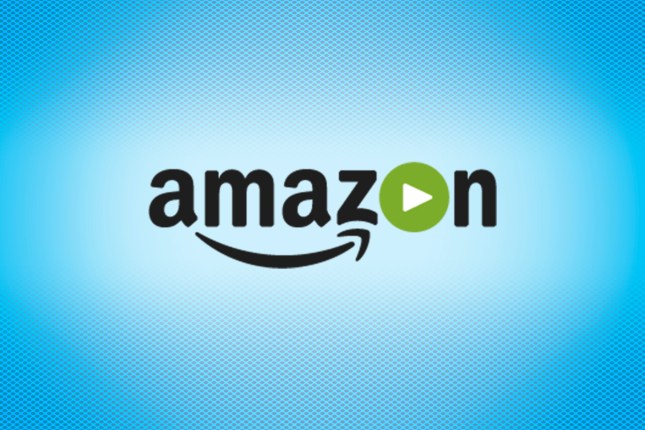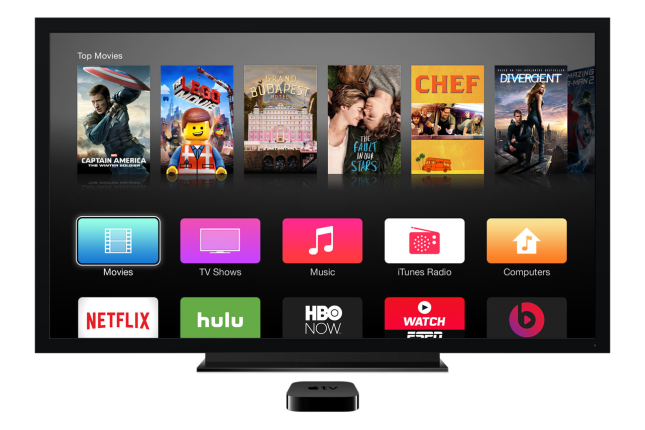Netflix is adding nearly 2 million subscribers a month, working with an $8 billion programming budget for 2018, and has a strong enough platform to turn a critically deplored movie like Bright into the streaming equivalent of must-see TV. Tech giants Apple, Google, Amazon and Facebook are all considerably larger companies, but Netflix is the one driving the new conventional wisdom that bundled TV — Comcast, Charter, DirecTV, etc. — is in gradual, perpetual decline and will be replaced in the coming years by global streaming providers.
That market assumption is what drove Disney’s announced acquisition of 21st Century Fox’s entertainment assets — a movie and TV studio, the FX cable channel and 30 percent of Hulu — and plans to launch a Disney-branded streaming service in 2019 that will include the Marvel Studios, Lucasfilm and Pixar catalogs plus originals under all three of those labels. In 2018, Hollywood, Silicon Valley and Wall Street will all put pressure on the companies in the sector to remake themselves for a world where streaming is king and everything else — cable bundles, broadcast TV, theater chains, etc. — recedes into the background.
Here are nine areas where streaming will play out in 2018, and they all relate in one form or another to Netflix and its imprint on the new order.
HBO Will Try To Survive A Whole Year Without 'Game of Thrones'

Winter is still coming, but it won’t get here until 2019. With its announcement last week, HBO confirmed that the six-episode final season of Game of Thrones will skip 2018 entirely and air sometime in 2019. The break will give Thrones extra time to work on those CGI dragons and HBO extra time to figure out which and how many of the five potential spinoffs it will green-light and when the first one will be ready to premiere.
HBO is well positioned from its expansion over the last several years to compete globally with Netflix and Amazon, but there aren’t a lot of obvious global-hit contenders in the stable. Most of the networks other announced 2018 projects — like Alan Ball family drama Here and Now, Bill Hader hitman comedy Barry and new season of True Detective — are potential awards contenders with likely limited global appeal. Westworld, which earned solid ratings and 22 Emmy nominations in its premiere season, will be back for Season 2 in 2018 and is HBO’s most obvious Next Big Thing. (Or, at least that’s what they’re hoping.)
AMC, CBS May Disappear Into Conglomerates
Although Netflix has a much smaller market capitalization — an important factor in sorting out who can buy whom — than companies like Apple, Google and Facebook, the world’s biggest subscription-video provider has put enormous pressure on companies like Disney and CBS to get bigger and more streaming-capable to better compete for the hundreds of millions of global viewers who are quickly transitioning from traditional cable to streaming services.
In 2018, federal regulators will determine whether or not AT&T’s acquisition of Time Warner, Discovery Communications’ acquisition of Scripps Networks, and Disney’s acquisition of entertainment assets of 21st Century Fox are above board. Smaller companies like Viacom, CBS, AMC Networks and Discovery Communications would be inexpensive pickups for tech companies, broadband providers or bigger media companies who are looking to add entertainment assets to their portfolios. (BTIG media analyst Rich Greenfield wrote in a recent research note that he believes Viacom and CBS will merge in 2018.)
The Paramount Network Will Emerge, But Will It Get Any Traction?
Viacom is rebranding its Spike TV cable channel to Paramount Network on January 18, and the changes are much more than cosmetic. The new network is making a major bet on scripted programming with the Waco miniseries starring Michael Shannon and Taylor Kitsch premiering on January 24. Additionally, Heathers (a TV adaptation of the film), Yellowstone (starring Kevin Costner) and American Woman (starring Alicia Silverstone) all coming in the first half of 2018.
Paramount Network will be a flagship cabler and a scripted hub for Viacom, whose VH1, MTV, BET, Logo and TV Land networks have focused primarily on reality and syndicated programming with few original, scripted hits. Viacom, which also owns the Paramount movie studio, aims to make Paramount Network into an awards contender and conversation starter along the lines of AMC, FX and the premium-cable networks.
Amazon Will Get Deeper Into Live Sports

Netflix and Amazon offer hugely different products that both happen to include streaming video. Netflix has a bigger catalog, more originals and everything is on demand; Amazon’s Prime Video is no additional charge for Amazon Prime two-day-shipping subscribers, has a more limited catalog and fewer originals, and has built Amazon Channels into an a-la-carte TV service. The biggest difference, though, is that Amazon is interested in developing an audience for live viewing.
Amazon’s The 2018 Rose Parade Hosted by Cord & Tish — a loopy, original confection with Will Ferrell and Molly Shannon playing local-TV hosts — earned Amazon a lot of social-media attention and cool factor in large part because it was happening live. The same was true for NFL’s Thursday Night Football this fall, which was modestly successful despite all of the games also being available on the NFL Network and either CBS or NBC. Amazon has also dabbled in streaming tennis and has explored getting streaming rights for other sports.
The NFL is reportedly planning to make a decision on a one-year contract for Thursday Night Football for the 2018 season before the February 4 Super Bowl, and I would not be surprised to see Amazon wind up getting exclusive rights or sharing those games with the NFL Network but not NBC, CBS or other broadcasters. Amazon is also looking to build The Lord of the Rings and Tong Wars into big, must-watch event shows (a la Game of Thrones), but those likely won’t be ready until 2019. I also look for Cord-and-Tish livecasts to become a franchise, but that may just be wishful thinking.
Global Markets Will Power Netflix's Growth
Netflix surpassed 100 million worldwide subscribers in 2017, and international subscriber growth (17.2 million) outpaced U.S. growth (5.3 million) by a 3-to-1 margin. Morgan Stanley media analyst Benjamin Swinburne projects global markets to continue fueling Netflix’s growth in 2018 and beyond — accounting for nearly 80 percent of Netflix’s new subscribers every year for the next eight years. What does that mean for U.S. customers? More international originals but also more everything. Swinburne projects that Netflix will increase its spending on licensed and original content annually to $14.4 billion in 2027.
Apple Will Finally Signal a Streaming Direction

Apple has lots of great pieces, and they’re going to start coming together in 2018:
- In 2017, Apple ordered a reboot of the Amazing Stories anthology series that will be overseen by Steven Spielberg and Bryan Fuller, a two-season order for a series starring Reese Witherspoon and Jennifer Aniston that will be set behind the scenes at a morning talk show, and a handful of other shows totaling a reported $1 billion in 2018. Where will Apple put those shows? We don’t know.
- Apple Music is a global music streaming service with 30 million subscribers, the Beats 1 global radio station, lots of curated playlists and a growing catalog of music documentaries.
- Apple’s new Apple TV 4K is the best streaming device on the market. At $179 — well above the cost of similar devices from Roku and Amazon — Apple TV 4K sold out the day it launched on Amazon and was back-ordered everywhere else most of December.
- Apple’s TV app for Apple TV, Apple TV 4K, iPhone and iPad is an intuitive, smartly designed platform for watching programming across Netflix, Amazon Prime Video, Hulu and other streaming-video platforms.
Clearly, Apple is going to do something with those new TV shows — Jennifer Aniston won’t be slumming for $1.99 an episode on iTunes — and the recently enacted tax cut makes the purchase of a company like Disney or Netflix much more attractive now for Apple. A big purchase certainly makes sense if Apple wants to get immediately into the streaming-video business is a big way, but Apple has typically grown its own hits — the Mac, the iPhone, the iPad — and acquired for technology rather than for market share. Apple has also stayed at the premium end of its markets, which is why there’s not a $29 Apple TV stick.
My guess: Apple will revamp Apple Music into a music/TV service and leverage the originals as a sweetener to take market share from Spotify and the TV app to sell Apple TV 4Ks to iPhone and iPad users.
Bundled TV Will Continue to Shed Subscribers
The number of U.S. broadband homes grew past the number of U.S. bundled-TV homes in 2017, and there’s every reason to expect that the trend will continue into 2017. The median monthly bill for satellite and local cable service — $106 a month in 2017 — will continue to rise as broadcast and cable providers continue negotiating automatic annual increases in their carriage fees. The subscriber declines have been slow enough so far that broadcasters like CBS and cablers like Discovery Communications and AMC Networks have been able to largely offset the subscriber losses with higher carriage fees for the subscribers who are still there and higher ad rates for the programming that those subscribers are watching.
The big unknown is whether bundled TV will continue to decline modestly for the next several years or fall off a cliff. “That will be driven by both the providers and the consumers,” media analyst Bruce Leichtman told Decider in 2016. “The degree of losses depends on how much the [provider] wants to chase subscribers who may be less valuable.” For AT&T, that has played out in the form of its DirecTV and U-verse subscribers beginning to migrate to the DirecTV Now streaming-bundle service, which costs $35 a month and includes most of the live and on-demand programming that those subscribers are accustomed to watching.
Cable Channels You Don't Watch Will Disappear
Have you watched anything lately on the Destination America cable channel? Or Destination Life? Or the American Heroes Channel? Probably not. Cable lineups are dotted with channels that air mostly syndicated programming, have few or no big-budget originals and draw tiny audiences. “It’s pretty clear that there are way too many channels,” media analyst Rich Greenfield told Variety in March. “The TV bundle has gotten too bloated with channels that have too little programming. There’s a tremendous amount of inefficiency.”
The three channels that I mentioned above are among the 19 that Discovery Communications will have after its merger with Scripps Networks is completed in 2019. That’s too many. As carriage costs increase, Comcast and Dish Network no longer want to carry 19 Discovery-owned channels. Streaming-bundle providers like YouTube TV and PlayStation Vue aren’t interested in those channels either. And as programming costs increase, Discovery no longer wants to program that many.
Streamers Will Figure Out Limited Series
Netflix had two Emmy nominees this year for Outstanding Comedy with Unbreakable Kimmy Schmidt and Master of None and won the Emmy for Outstanding Movie with Black Mirror‘s “San Junipero” episode. Hulu became the first streaming service to win for Outstanding Drama this year with The Handmaid’s Tale. None of the streaming services, though — including Amazon — have yet scored a nomination for Outstanding Limited Series.
That will probably change in 2018. Netflix will likely make a push for its well-reviewed western Godless and even-better-reviewed Margaret Atwood adaptation Alias Grace, and Hulu will premiere The Looming Tower, its post 9/11 drama, on February 28. Amazon could have a contender with Philip K. Dick’s Electric Dreams, though Netflix has traditionally submitted its similar Black Mirror series in the Television Movie category, or with Matt Weiner’s The Romanoffs if it premieres before the early-summer Emmy deadline.
Scott Porch writes about the TV business for Decider, is a contributing writer for Playboy, and hosts a weekly podcast about new digital content called Consumed with Scott Porch. You can follow him on Twitter @ScottPorch.
 Fun
Fun Frisky
Frisky Nostalgic
Nostalgic Intense
Intense Adventurous
Adventurous Choked Up
Choked Up Curious
Curious Romantic
Romantic Weird
Weird














